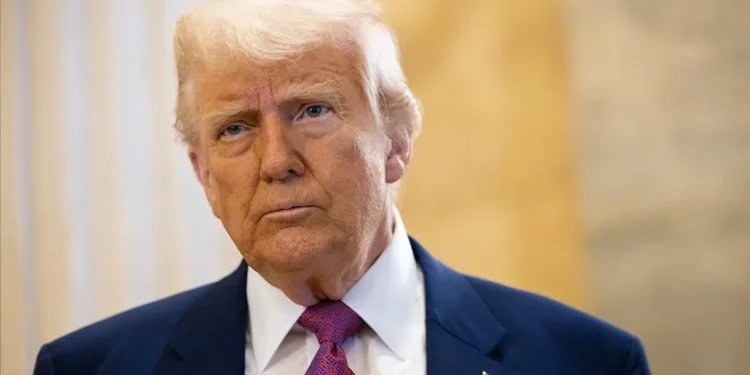President Donald Trump on Thursday renewed calls to strip television stations of their broadcast licenses if he believes they report unfavorably about him, saying the decision could fall to FCC Chairman Brendan Carr.
Speaking aboard Air Force One after returning from London, Trump criticized networks he said provide “only bad publicity,” and suggested a licensing consequence might be appropriate. He added that any action would be up to the FCC chair.
The remarks come amid a fast-moving dispute over recent comments by late-night host Jimmy Kimmel. The Federal Communications Commission’s Brendan Carr publicly warned broadcasters after Kimmel’s monologue about the assassination of Charlie Kirk, and ABC removed Kimmel’s show from its lineup indefinitely on Wednesday.
Carr has argued that companies holding FCC-issued broadcast licenses, unlike many cable and streaming outlets, have a statutory duty to serve the public interest. He told Fox News that broadcasters such as ABC, CBS and NBC operate under obligations tied to their licenses that Fox and CNN, as cable channels, do not.
Trump praised Carr’s stance on social media and again criticized late-night comedians, singling out what appeared to be references to Seth Meyers and Jimmy Fallon. He has previously urged regulators to act against broadcasters, writing last month that outlets giving him “97% BAD STORIES” should lose their licenses or pay more for access to the public airwaves.
Sinclair Broadcast Group, which operates ABC stations in dozens of local markets, said the network’s suspension of Kimmel was insufficient and called for further steps from both ABC and regulators.
Critics say threats to revoke licenses raise free-press and First Amendment concerns because the FCC’s licensing authority carries powerful leverage over local broadcast outlets. Supporters of Carr’s posture counter that licensees already accept public-interest obligations in exchange for using limited and valuable airwaves.
The dispute underscores growing tension between television executives, federal regulators and the White House over how broadcast standards, political commentary and platform accountability should be enforced.







